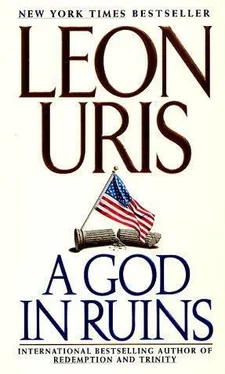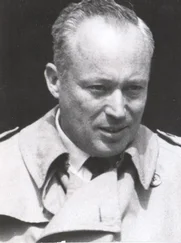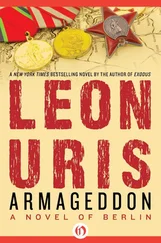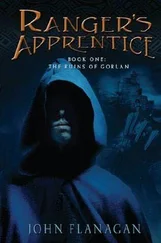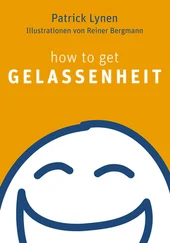“Mr. O’Connell?”
“Mr. Tomtree’s reference was to my campaign manager, Greer Little-Crowder. The Longacre think tank has marched to T3’s drumbeat for twenty years, fed by your generosity of over three million dollars.”
“You see there, how you are trying to distort—“
“Longacre didn’t verify a single fact, Mr. Tomtree. It was a hatchet job to create suspicion over the raid. There are only one or two persons who could have written it. We’ll know soon enough, and it won’t hold till after the election.”
Well, now, he had dared O’Connell and O’Connell had not thrown out the Pucky affair. Even if Quinn attacked, the revelation would backfire on him. O’Connell could then easily go down as a raider and a shark.
On the other hand, if Quinn misses this opportunity, he will I show he is too weak to duke it out with me, Thornton thought.
“The American people will have an answer on this in a few days,” Carter Carpenter said. “I think it propitious to move on to other issues.”
Just what Thornton wanted, to create doubt and confusion, leave it unsettled, challenge O’Connell’s hero status.
Thornton was now wired with charts and graphs—over the hills and down to the dales, to grandmother’s house we’ll go-lines and colored bars and round pieces of pie all sliced to percentages. Thornton was in a boardroom posture where he could lay a hundred and one booby traps with the figures distorted, omitted .. . and with three you get egg roll.
“I’ve got a real problem with your charts,” Quinn laughed.
“Yes, I know, of course you do,” Thornton replied. His blood circulated faster as his full strength returned. Thornton hung tenaciously to the visuals, unfinished portraits.
“Gentlemen,” Carter Carpenter said, “we are running low on time. You both have enough for a three- to five-minute summation. Mr. Tomtree.”
“So what if the Urbakkan article proves to be wrong? All it proves is
that after three decades under seal, someone in O’Connell’s court was able to slip disinformation to us, using an honorable institution as a dupe. It is this kind of confusion that the American people will be facing from the White House if this man is elected.”
“Hot damn!” Thornton congratulated himself. “I whacked him good! Now, nail it on, T3.”
“Is it not fitting,” Thornton continued, “to have had this debate in this great library? Nothing could better explain the difference between us. I am of the new American breed who has made possible transmitting every piece of information in this library anywhere on earth, in a fraction of a second. Since this new century began, we have moved to the cusp of forging a great electronic world. Men like Quinn Patrick O’Connell would rather carve in stone than have a printing press. Yes, there is greed and sin and garbage on the Internet and on the cable channels.
“When has the human face been free of greed? Every time a new invention comes into play for the betterment of the human race, greedy legions pounce on it.
“I know that. I also know who of the two of us is better suited to deal with this complicated new world technology. Quinn Patrick O’Connell has shown himself to be a one-issue candidate. The sophistication and needs of man’s new electronic age cannot be mastered by him.”
“May I?” Quinn asked.
“Yes, Mr. O’Connell,” Carter said.
“Thornton Tomtree will indeed keep us busy regulating the two-bit
stockbrokers, children’s porno, scams, and slap a wrist for the massive
invasion of American privacy. There will be sensational trials and
rigid regulations. That will be for the greedy little flies buzzing
around a dead carcass. But Thornton Tomtree will leave the big players
alone. T3’s seven hundred and forty industrial, commercial, shipping,
banking networks are the greatest instruments for greed this world has
ever seen. He’ll use his power to ride shotgun on the little fish
while, at the same time, he covers up billions of dollars moving daily in utter secrecy.”
Quinn had weighed carefully but quickly, and the words seemed to tumble out of his mouth.
“This is not a Tut’s tomb or an obsolete dinosaur. This is my father’s generation who gave more of themselves for the betterment of this nation than any other.”
A great door opened between speaker and listeners.
“I’ve lived on a ranch most of my life. My parents and I took a lot of trips. The moment of glory was entering this building and the Library of Congress in Washington. It was like coming into a sacred place. I knew, early on, that the writer afforded me a window to our past, an understanding of human relationships that set me on a bridge to cross and participate with my own generation. I was often lonely. It was not till I read Of Mice and Men that I realized I was not alone and that loneliness was a universal sadness of man.
“I’ve spent a lot of time with John Steinbeck. He bared his soul to bring light to me. He bared human frailty in his pages and in his own life—as did a hundred .. . no, a thousand other authors who knew what one little boy was going through and who stood tall for the dignity of man.”
What the hell is he getting at? Thornton wondered. He’s rambling. But would you believe the quiet in here? Believe it?
You ought to see Times Square silent. Taxis pulled over into parking lanes, and twenty-five thousand people, or more, watched the great screen.
“We tore down buildings like this not long ago,” Quinn went on, “in our
everlasting hunt for the mall and the skyscraper. What the hell! The
legacy of past generations can now be kept on a piece of software and
flashed up on the screen with a tweak of the mouse. “Something is
missing from that. What is missing is the personal relationship, the
love between writer and reader, all the hope and all the horror the
writer has to tell you. It is you and the writer alone, together, that will give you understanding about the joy and fear, the jealousy and love you have with your parents and your sisters and brothers.
“I glory in the electronic age, but do not tear this building down. I believe that the salvation of man will not come from an IBM printout, but from the words, on stone indeed, that came down from Sinai. Let us not abandon all the great thought in these rooms to the proposition of putting all our faith into an impersonal machine. By so doing, we will become something less than human beings ourselves.”
*
After the debate the ground shifted, radically. The Tomtree campaign seemed to run out of energy. O’Connell had splintered away part of the hard Right, not by politics alone, but by the growing charisma of the candidate. Is O’Connell too good to be true?
In Los Angeles, Quinn spoke to the Mexican American community with a candor they had not heard. “We have no right to interfere with Mexican internal affairs, but for Mexico to be a good neighbor of the United States, its institutionalized corruption must stop. No better example of that is the exploitation of Mexican labor in factories along our borders.”
It was another of Quinn’s daring speeches, but some people finally heard out loud what they had been saying in whispers.
The following night was a gathering in the Hollywood Bowl for a two-hour telecast from the community of stars. It was a love-in.
Rita knew the instant her daughter-in-law phoned. Siobhan had pulled herself together for coherence every night when her son phoned. For the last two nights she had been unable to speak to him.
Читать дальше
